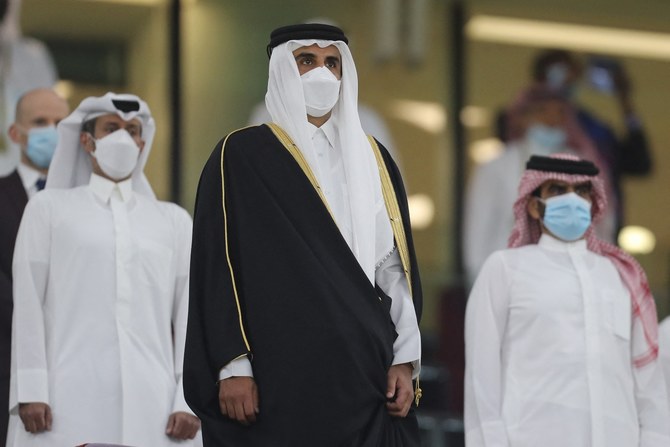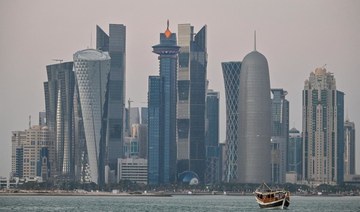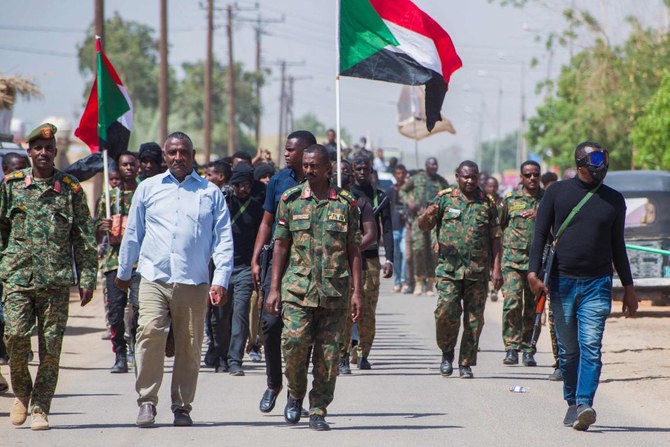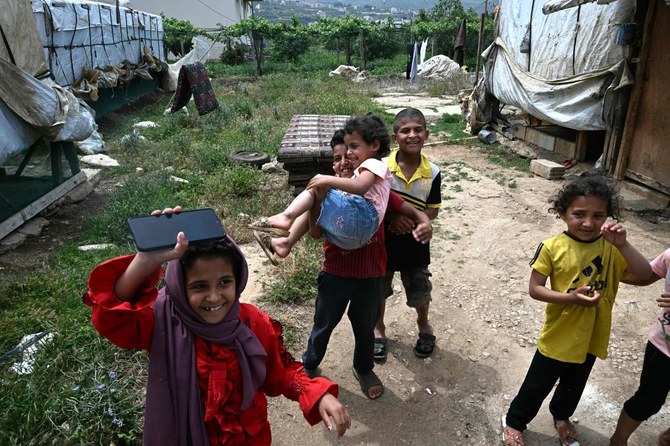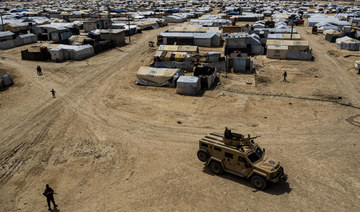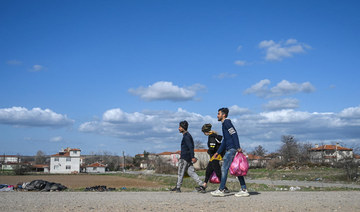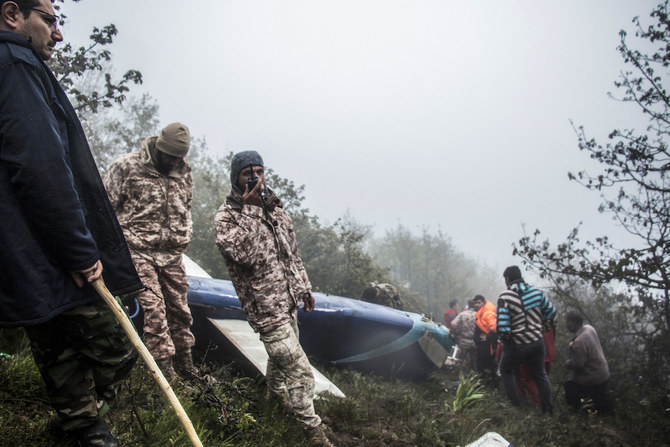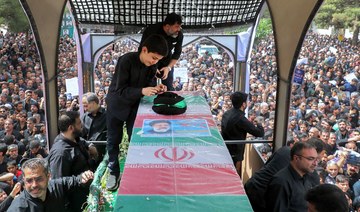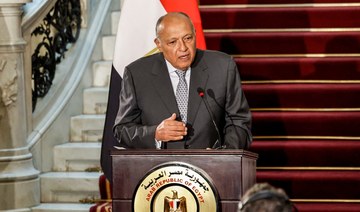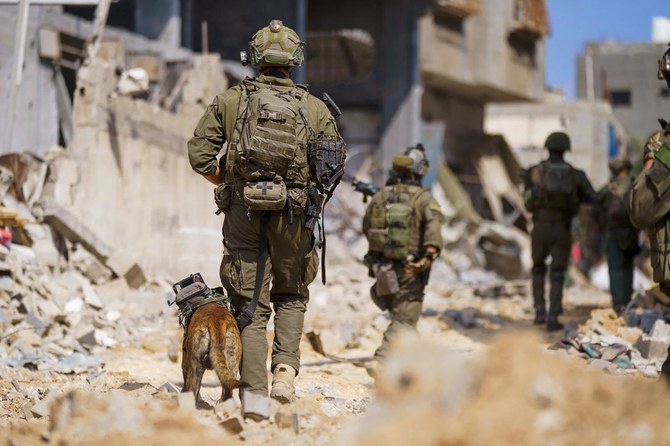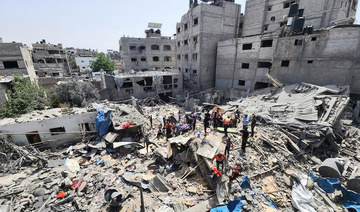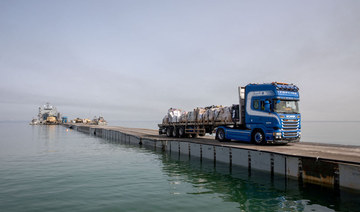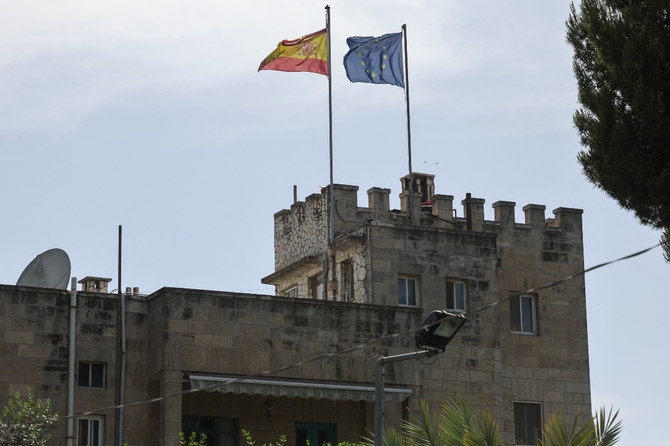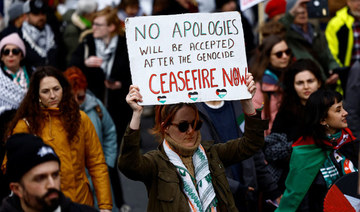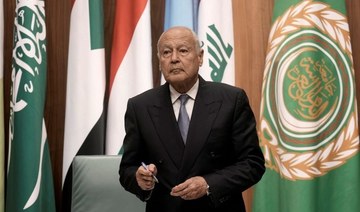MINYARA: For weeks, refugee Maryam Janhat has been living in fear of deportation as Lebanon cracks down on Syrians, with politicians ramping up calls for them to be forced home.
Refugees from Lebanon’s war-torn neighbor face a dilemma: should they stay and contend with stricter measures and growing anti-Syrian sentiment, or should they return home and risk poverty and repression?
Standing at her husband’s vegetable stall by the side of the road outside the village of Minyara in Lebanon’s impoverished north, Janhat, 38, said she lives in a state of constant worry.
“I am scared when (my husband and children) come to work at the stall. I am afraid they could take my son at any moment... we are afraid to walk the streets,” she said.
Syrians make up about half of Minyara’s 8,000 residents, the municipality says, with most living in tent camps adjacent to vast agricultural fields.
Janhat, who took refuge in the village a decade ago after fleeing violence in the central Syrian province of Homs, feels lucky to be living in a house rather than a flimsy tent.
But she and her family have been unable to renew their residency in Lebanon, and they fear being deported to Syria where she says they have “no house, no work, and no security.”
A few steps away, 70-year-old Ibrahim Mansour is offloading crates of fruit and vegetables from his van to sell.
Syrians “have stalls everywhere, competing with us in every sector,” he said.
“When they leave, the situation will improve a lot.”
Many Lebanese, including politicians, have long pushed for Syrians who have fled 13 years of civil war at home to return, blaming them for exacerbating Lebanon’s woes, including a crushing economic crisis that began in late 2019.
Lebanon says it currently hosts around two million people from Syria — the world’s highest number of refugees per capita — with almost 785,000 registered with the United Nations.
In recent months, politicians have ramped up anti-Syrian rhetoric, with Hassan Nasrallah, who heads the powerful Hezbollah group, urging Beirut to open the seas for migrant boats to reach Europe to pressure for more Western aid.
Earlier this month, the European Union announced $1 billion in aid to Lebanon to help tackle illegal migration, mostly of Syrians to nearby Cyprus, the bloc’s easternmost member.
Lebanon has long heavily relied on Syrians for manual labor, especially in agriculture and construction.
Minyara mayor Antoun Abboud said Syrians were needed in the workforce but that his village cannot accommodate large numbers of refugees or provide them with basic services.
“We are not telling them to leave. We just want to reduce... and organize Syrian presence” in Lebanon, he said.
Lebanese security forces have intensified a crackdown on Syrians without residency permits, shutting down their businesses and forcing them to evacuate their homes.
“Hate campaigns, legal restrictions, and unprecedented measures to make it difficult to obtain residency” are on the rise, said Sahar Mandour, Amnesty International’s Lebanon researcher.
This means most Syrians find themselves without legal residency, she said, adding that “voluntary returns are impossible in these conditions.”
In one of the informal camps near the village, children play in the dirt, while men sit idle, too frightened to leave.
“Everyone is scared,” said herder Hajjem, 37, who declined giving his last name for security concerns.
“Syrians cannot move anymore. Even laborers in the fields are skipping work,” he said, shearing his sheep near the camp, while women around him collected the wool.
He fled to Lebanon illegally eight years ago, at the height of Syria’s war, and cannot return because he says he is wanted by Damascus.
He said he has been too scared to venture outside for work since security forces began to clamp down more forcefully on Syrians.
“I can’t sleep at night because the army or security forces could deport us at any moment,” he said.
His elderly father is also filled with worry.
“If we leave, we will die of hunger. There are no opportunities in our country,” he said.
“It would be better to throw oneself into the sea.”



